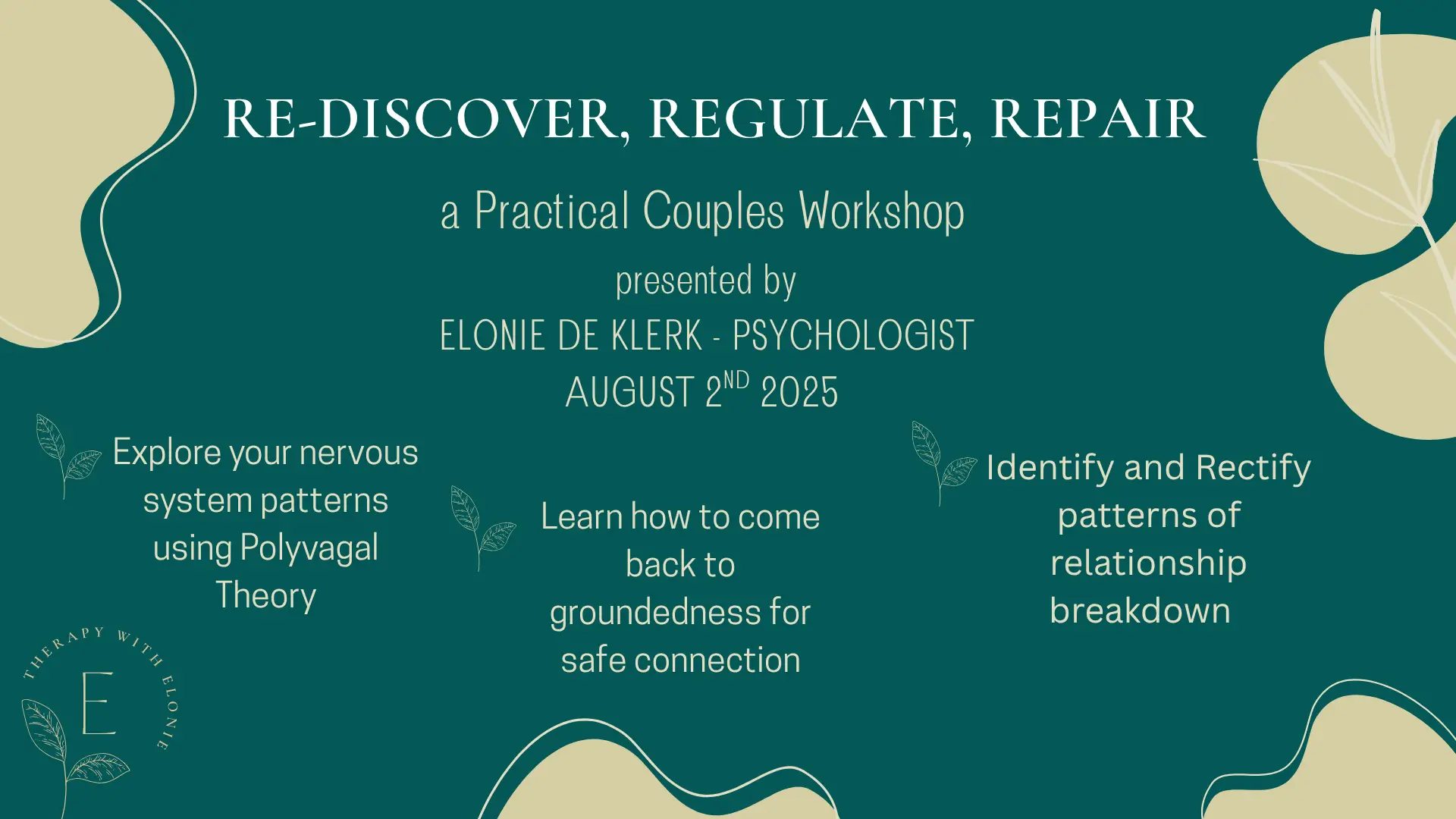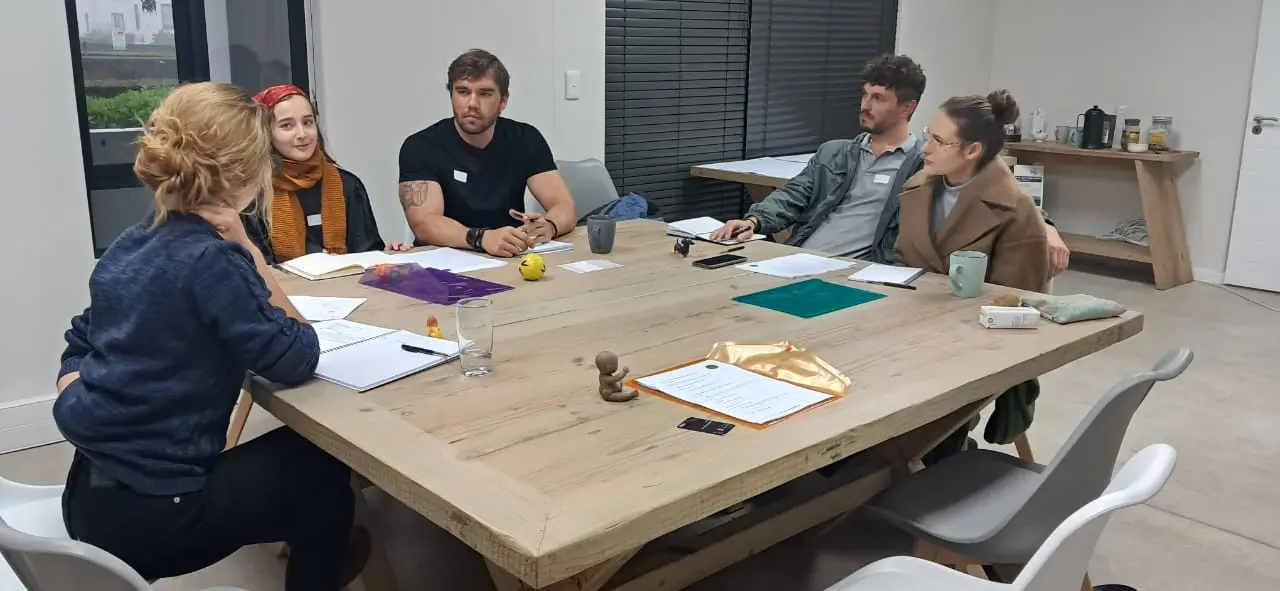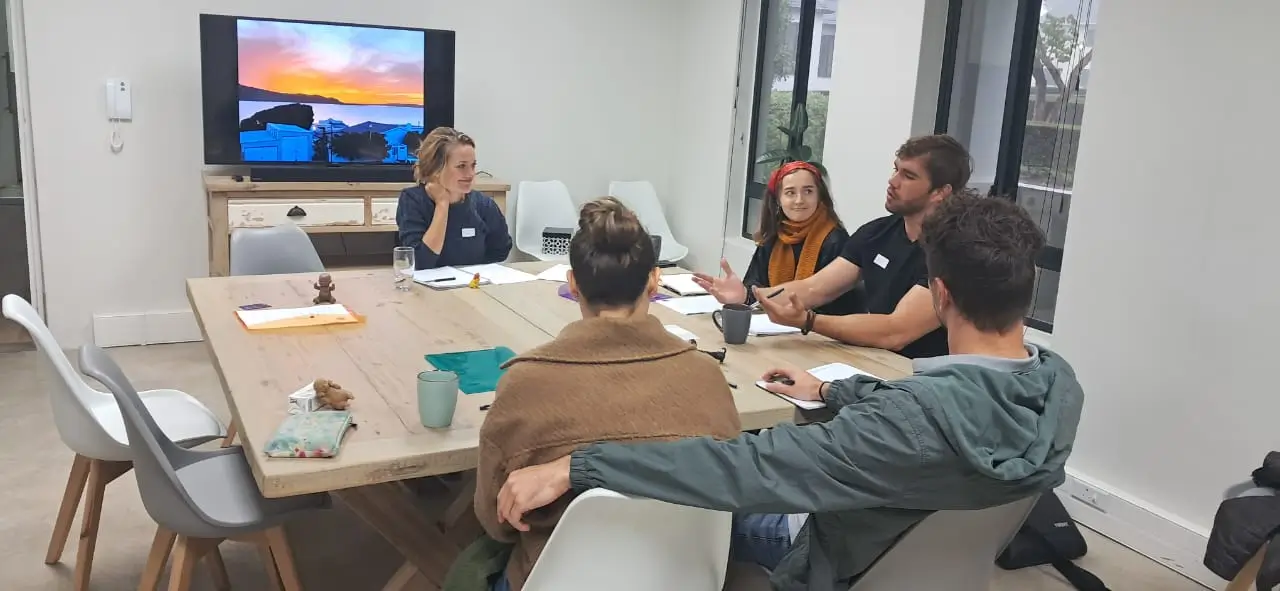
This past month, I had the privilege of hosting a couples workshop set in a quiet, natural space—an intentional pause for partners to step out of the rush of daily life and into reflection, connection, and discovery. We explored what it means to feel safe in a relationship, how to recognize and regulate our own nervous system responses, and how to stay emotionally present with each other—even during moments of conflict.
Why Slowing Down Matters
So often, couples arrive in therapy already in a heightened state—stressed, disconnected, and unsure where to begin. That’s why we started our workshop with the idea of slowing down, tuning in, and learning to listen to the body’s signals through the lens of polyvagal theory. Developed by Stephen Porges, this framework helps us understand how our nervous system responds to cues of safety and threat. When we’re aware of our physiological state, we’re better able to respond with intention rather than reactivity.
To bring this to life, each couple drew a series of trees together—one representing their ventral vagal state of safety and connection, another showing sympathetic activation (the fight-or-flight response), and a final one representing dorsal vagal shutdown (a collapsed, disconnected state).
Couples were often surprised by what surfaced. Some realized that people-pleasing—a response that can look agreeable on the surface—actually bordered on the dorsal state of withdrawal or self-abandonment. Others noticed how similar behaviors might arise from completely different nervous system states. This deeper awareness helped them understand both themselves and their partners with greater compassion.
Helping Each Other Find Our Way Back
From there, we explored how to return to a more grounded, connected state. We practiced simple, practical grounding techniques—tools couples could use both individually and together. One of the key takeaways was this: getting back to your grounded state is first your own responsibility, and then your partner’s. It’s easy to fall into the trap of expecting your partner to co-regulate you instantly, but this workshop emphasized the importance of knowing your own internal map before trying to meet someone else on theirs.
Couples found these grounding practices surprisingly effective—whether it was breathing together, stepping outside, or finding ways to signal safety and presence during everyday moments of tension.
Navigating the Four Horsemen
Later in the day, we turned toward one of the most well-known frameworks in couples therapy: Dr. John Gottman’s Four Horsemen of the Apocalypse—criticism, defensiveness, contempt, and stonewalling. We explored how each of these shows up in subtle and overt ways in relationships, and how damaging they can be when left unchecked.
More importantly, we focused on the antidotes:
Gentle start-up instead of criticism,
Taking responsibility instead of defensiveness,
Building a culture of appreciation to counter contempt, and
Self-soothing and structured breaks instead of stonewalling.
These concepts gave couples a shared language for understanding their conflict patterns—and a way forward that didn’t require perfection, just awareness and effort.
Why This Work Is Personal for Me
I often tell my clients that I wouldn’t offer something I haven’t wrestled with myself. I’ve been married for 18 years, and like most long-term relationships, ours has seen different seasons—some gentle, others far more rugged. Right now, my husband and I are both working, raising young kids, and juggling the logistics of daily life. We still go to couples therapy in difficult seasons—not because something is broken, but because we want to keep finding each other through the chaos.
Running this workshop reminded me again how much strength there is in simply showing up: with your partner, with your own vulnerability, and with the hope that connection is always possible—even if it looks different in this season than it did before.
An Invitation to Reflect
If you’re reading this, perhaps you’re wondering how your own relationship is doing. You might ask yourself: What’s currently working between us? And is it possible to do more of that—or even make what’s working more visible, more intentional?
Or perhaps there’s something that isn’t working. Can you gently ask: What might each of us be contributing to this pattern? And what could our first step be in shifting it—together or individually?
Whether you’re looking to deepen connection, navigate a tricky season, or simply pause and take stock, your relationship deserves space to grow.
Thank you for reading.
Below are the details for our next Couples Workshop along with some pictures of the past workshop.



